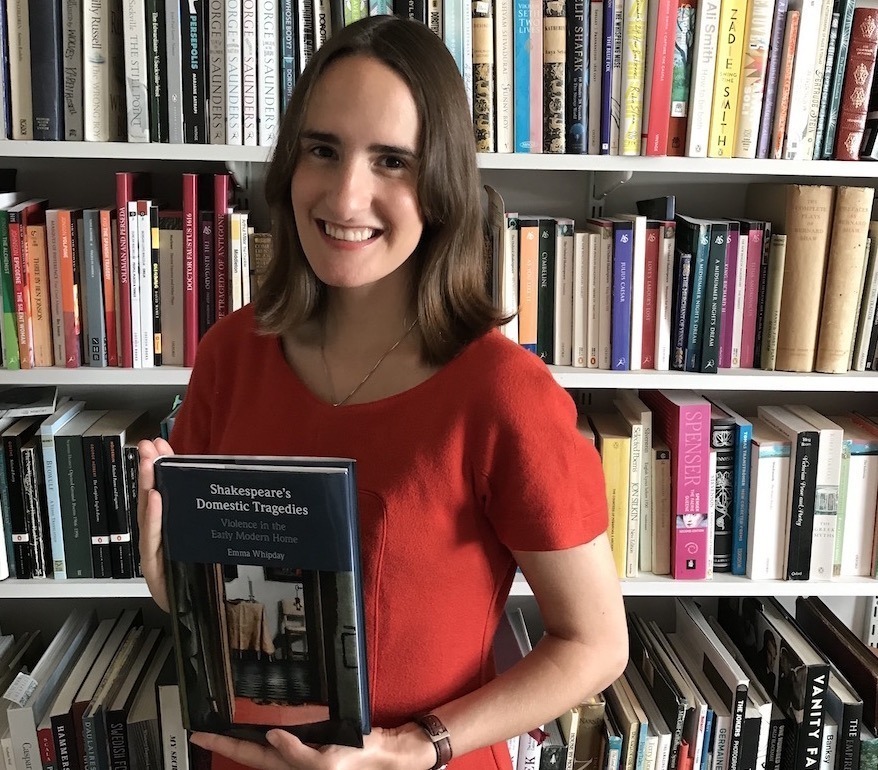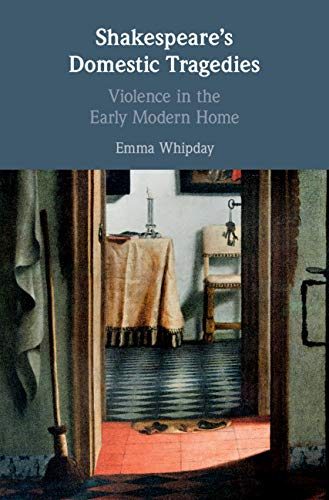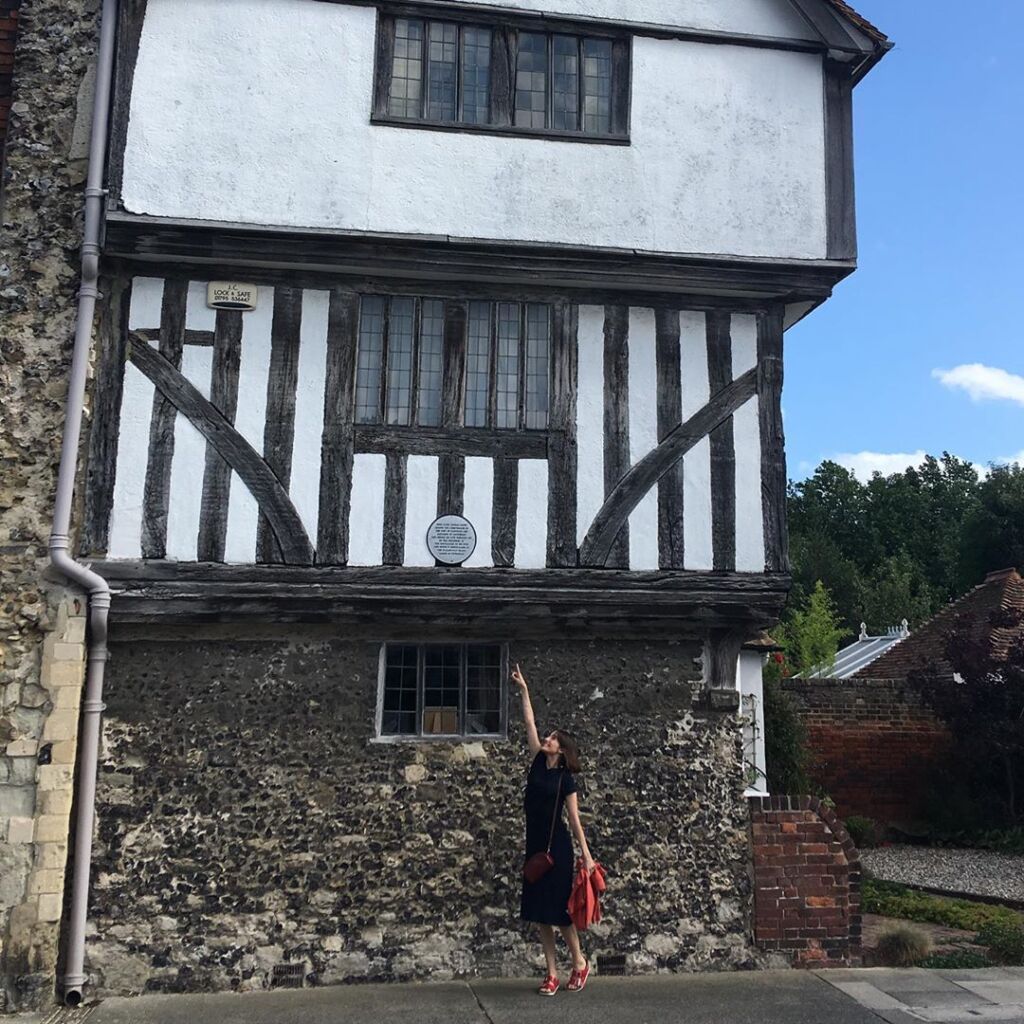Millions of words have been written about Shakespeare but a bright spark from Newcastle has made scholars sit up. David Whetstone talks to Dr Emma Whipday about her prize-winning book.

Emma Whipday who is the joint winner of 2020’s Shakespeare’s Globe Book Award
It has been a bitter-sweet year for Emma Whipday, confined due to lockdown and having to forego a keenly anticipated trip to America, but the young academic couldn’t contain her glee at winning a coveted prize for her first book.
“I screamed,” says the nearly 32-year-old candidly, recalling the email that informed her she was the winner – jointly, with Oliver Morgan from Cambridge University – of the Shakespeare’s Globe Book Award.
There had been entries from around the world for the prize, worth £3,000 (which this year must be shared) but more importantly a more elevated position in the field of Shakespeare scholarship.
“I was really delighted because while there are more general books, as far as I’m aware this is the only Shakespeare-specific academic prize for a first book,” she says on the phone.
“It’s awarded every two years and I’ve liked all the previous books that have won so it’s nice that my book now sits alongside those.
“I was overjoyed to be shortlisted and told myself that it was a real honour. But I admit I was thinking… what if I won?”
She had an eye on her email inbox on the day news was expected, rather as one watches the pot that never seems to boil. And, indeed, she went to make a cup of tea. When she returned, there it was… and you know what happened.
No less delighted were her parents, proud as punch but having to sit on the news since it was embargoed. “They kept saying, ‘Can we tell anyone yet?’” recalls Emma.
Newcastle University, too, have taken pleasure in their staff member’s success. Dr Emma Whipday joined its school of literature, language and linguistics two years ago as a lecturer in renaissance literature.
Her winning book will generate no Harry Potter-style sales. The result of years of academic study arising from a spark of original thought, it is currently on sale in hardback at £80 – but Emma says Cambridge University Press are rushing out a paperback.
It is called Shakespeare’s Domestic Tragedies: Violence in the Early Modern Home.
The judges, pointing out that this year’s competition had attracted “an exceptionally strong haul”, called it “impressive”. It got a good review in The Times Literary Supplement and a critic from Oxford University called it important and elegantly written.

Emma’s award-winning book
In the book Emma explores the idea that Shakespeare, revered for his plays about kings, queens and other important figures, was influenced by lower brow dramatic fare categorised as domestic tragedies.
“These are about real-life occurrences in the lives of ordinary people, usually of a sexual nature and involving sensational crimes, such as the murder of husbands by wives.
“They are plays about non-elite people and they were popular at the same time as Shakespeare’s.
“They are not so well known now because they’re often well over the top and quite gruesome. The language isn’t always beautiful so people have tended to think they can have no part in high art.
“But I think Shakespeare was watching these plays. Some were performed by his own company. I think he was influenced by them when working on tragedies like Macbeth and Hamlet.”
Emma explains how Shakespeare, when writing Othello, might have been influenced by Thomas Heywood’s domestic tragedy, A Woman Killed with Kindness, in which a wife suffers for being seduced by her husband’s friend.
Could the use of a false key in the plot have been the inspiration for jealous Othello’s reference to “a closet, lock and key, of villainous secrets” when about to interrogate his wife, Desdemona?
Emma believes other plays, including Arden of Faversham and A Warning for Fair Women, both based on grisly real-life murders, also inspired Shakespeare.
“There are lots of places where he seems to have taken something literal from domestic tragedies and turned them into something metaphorical,” she says.
Emma was born in Australia but her family are from the North East and she spent her early years in Ponteland. They then moved to Nottinghamshire where Emma attended her local comprehensive before winning a place at Oxford University to study English.
At university she thought she might become a journalist and did work experience at the Chronicle in Newcastle and The Sunday Times, but she decided she lacked “the killer instinct”.
She wanted to write but she never suspected she would end up specialising in Shakespeare. At Oxford, she says, student drama productions seemed to be the preserve of public schoolboys who knew more than she did – or thought they did.

Emma at the house where the murder in Arden of Faversham took place
But she loved Shakespeare. How did it happen?
“I suppose the honest answer is I saw Shakespeare in Love (the Oscar-winning film starring Gwyneth Paltrow) at a really impressionable age and fell in love with the world of theatre it represented.
“I took part in some summer schools in my early teens and luckily that meant I got to perform in a theatre. I also visited Shakespeare’s Globe (in London) and loved imagining what it would have been like in his day.”
The first professional Shakespeare production she saw was Romeo and Juliet on a school trip to Nottingham Castle. “I think it had someone out of Neighbours in it. It was very atmospheric.”
Along with accruing academic qualifications at Oxford and afterwards at University College London, Emma has directed plays and written them.
Her first, Shakespeare’s Sister, imagining that Shakespeare had a playwright sister, Judith, won a competition in 2015, and was published. It had its stage premiere in 2017 at the American Shakespeare Center in Virginia.
This was where she had wanted to be in April when rehearsals for her new play, also a competition winner, were to begin. The Defamation of Cicely Lee, inspired by Shakespeare’s Cymbeline, is set in Corbridge in 1611 where maidservant Cicely is accused of committing adultery with her former master.
The coronavirus pandemic got in the way, of course.
“Newcastle University gave me time off and I had the flights booked,” says Emma. “The performances didn’t take place. They haven’t cancelled it, just postponed it. I really hope it’ll get staged one day.”
Emma was delighted to land the Newcastle job and return to her roots.
“Newcastle is an exciting place for someone interested in creative things. There’s a lot of really cool stuff going on.
“It has been nice to come back to where my family are and the students have been great. I’ve been able to teach a third year option based on the stuff I’m interested in.”
During lockdown, though, Emma has been in Kent where her husband, novelist and academic Oskar Jensen, currently lives and works. It is from there she is speaking to me.
She says during the enforced confinement she has been trying her hand at writing a novel set in Tudor England, “not crime but a tragic story”. Only a mug would bet against it being published.
But she is looking forward to her imminent return to Tyneside, she says, to prepare for the new term and see friends and family in the flesh rather than on screen.
On Friday, September 18 (and thereafter) we will all be able to see Emma on screen as she gives the talk which comes as part of the Shakespeare’s Globe Book Award.
She and her co-winner will both speak at the Sam Wanamaker Playhouse, part of the Globe Theatre complex. Normally this would be before an audience but this time the talks will be recorded and posted online.
Check the Shakespeare’s Globe website for details or www.emmawhipday.com
